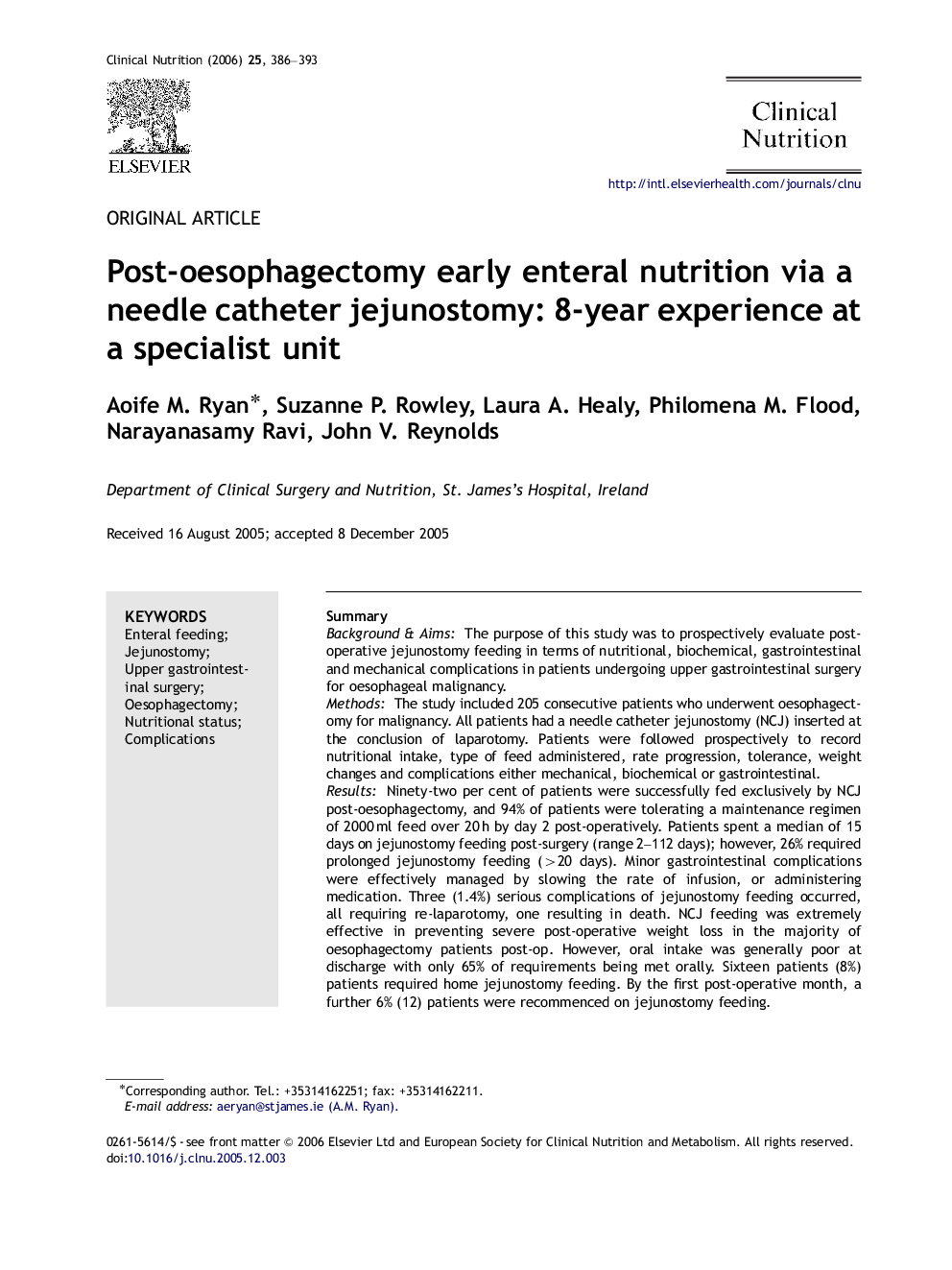| کد مقاله | کد نشریه | سال انتشار | مقاله انگلیسی | نسخه تمام متن |
|---|---|---|---|---|
| 2684539 | 1142756 | 2006 | 8 صفحه PDF | دانلود رایگان |

SummaryBackground & AimsThe purpose of this study was to prospectively evaluate post-operative jejunostomy feeding in terms of nutritional, biochemical, gastrointestinal and mechanical complications in patients undergoing upper gastrointestinal surgery for oesophageal malignancy.MethodsThe study included 205 consecutive patients who underwent oesophagectomy for malignancy. All patients had a needle catheter jejunostomy (NCJ) inserted at the conclusion of laparotomy. Patients were followed prospectively to record nutritional intake, type of feed administered, rate progression, tolerance, weight changes and complications either mechanical, biochemical or gastrointestinal.ResultsNinety-two per cent of patients were successfully fed exclusively by NCJ post-oesophagectomy, and 94% of patients were tolerating a maintenance regimen of 2000 ml feed over 20 h by day 2 post-operatively. Patients spent a median of 15 days on jejunostomy feeding post-surgery (range 2–112 days); however, 26% required prolonged jejunostomy feeding (>20 days). Minor gastrointestinal complications were effectively managed by slowing the rate of infusion, or administering medication. Three (1.4%) serious complications of jejunostomy feeding occurred, all requiring re-laparotomy, one resulting in death. NCJ feeding was extremely effective in preventing severe post-operative weight loss in the majority of oesophagectomy patients post-op. However, oral intake was generally poor at discharge with only 65% of requirements being met orally. Sixteen patients (8%) patients required home jejunostomy feeding. By the first post-operative month, a further 6% (12) patients were recommenced on jejunostomy feeding.ConclusionNCJ feeding is an effective method of providing nutritional support post-oesophagectomy, and allows home support for the subset that fail to thrive. Serious complications, most usually intestinal ischaemia or intractable diarrhoea, are rare.
Journal: Clinical Nutrition - Volume 25, Issue 3, June 2006, Pages 386–393